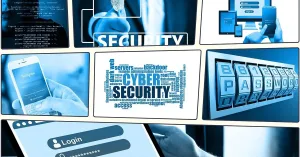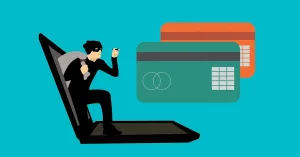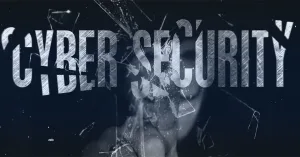Most of us are very familiar with the internet, but how educated are you when it comes to internet scams and cybercrime? There are many different tactics that scammers use to attempt fraud. And though advanced technology helps us all, unfortunately, it also opens up new avenues for cybercriminals. So the only true way to avoid scammers is to learn how they work and how to avoid them.
A Few Techniques Internet Scammers Use to Fool You
- Emotional Appeals
Scammers will try to appeal to your kind nature, sympathy, protective instincts, or romantic feelings. For example, they may claim to be a family member in an emergency or someone stranded in a foreign country who needs help getting home.
- Requests for Money
Scammers often ask for money early on in the relationship (often before they have met you face-to-face). They might say it is for airfare or medical expenses for them or a family member.
They might give you excuses for why they need the money and makeup stories that tug at your heartstrings. They might even say they will pay you back once they get home from their trip.
- Phishing
The scammer sends a legitimate-looking email with a fake problem (like "Your account has been suspended!") and may ask you to click on a link that takes you to a fake website where they can steal your login credentials.
- Fake Checks
You get a check from someone who wants to pay you for something. They tell you to deposit it in your bank account and then wire part of the money back to them (for whatever made-up reason). The check turns out to be fake and bounces, but the scammer has already gotten the money you sent them!
- Lottery Winnings
You get an email or letter telling you that you have won a lottery in another country. You have to send them some money so they can process all of the legal documents, and they will wire your winnings into your bank account.
6. Simple Deception
The best deceptions are often simple, which makes them easy to understand. But if you've ever been scammed, you know that the most insidious scams are the ones you can't explain. You know there's something wrong, but you don't know what. And that's exactly how the scammers want you to feel—confused enough to let your guard down but not confused enough to ask for help. Scams don't have to be complicated; they must look complex enough that people are embarrassed to admit they've been scammed.
How to Avoid Internet Fraud in the Age of Advanced Technology
Cybercrime is a global epidemic. The Internet presents a whole host of new opportunities for scams and fraud. Online shopping, social media, and even dating sites are rife with fraudulent activities.
Here are crucial ways you can avoid internet fraud in the age of advanced technology:
Never Respond to an Unsolicited Email Message or Pop-Up Window
Whenever you receive an email message or a pop-up window requesting you to send your personal information, do not reply. You should delete such messages or close pop-up windows without responding.
In many cases, these tactics of scammers are fraudulent and are sent by con artists to trick you into giving away your personal information, which they will use for malicious purposes such as stealing your bank account details and sensitive data.
Use Secure Websites
Ensure that you only use secure websites when giving personal information such as credit card numbers, bank account information, or social security numbers. You've undoubtedly noticed that certain pages on websites are identified as "secure" in your browser's address bar.
This indicates that these pages are encrypted to protect your personal information as it travels from your computer to the website's servers (and vice versa).
If you're going to purchase something online or otherwise, submit sensitive information to a website, and ensure that your connection is secure first.
Always Use Anti-Virus Software
Invest in anti-virus software and keep it up to date. This will help protect you from viruses and malware that can be sent to you through links online or email attachments from strangers or even people you know.
Be Careful About Who You Trust Online
People can easily create a fake online profile, and it can be tough to know if the person you are talking to is really who they say they are.
People often create fake profiles to steal other peoples' identities. It is best that you avoid sending any money or providing any personal information until you have had the chance to meet them.
Think Twice Before Entering Your Personal Information
When buying an item online, make sure that the payment provider or website you are using is reputable and secure. If a website does not have "HTTPS://" in front of it, it might not be safe, and your personal information may be at risk.
Use Strong Passwords and PINs
Make sure you use strong passwords and PINs to protect yourself from unwanted access to your accounts. When possible, use different passwords for each account. And never share these passwords with anyone else. Many people fall for phishing scams where criminals send emails pretending to be from the bank asking for your personal information - including passwords and PINs.
Banks will never ask for your PIN or full password in an email or phone, so never give them out.
Don't Be Afraid to Check Up on People
Legitimate companies do not send unsolicited emails asking customers for personal information like credit card numbers; if you receive such an email, call the company directly (not by dialing a number provided in the email itself) and ask about it before responding.
Avoid Using Unsecured Public Wi-Fi Networks
It can be tempting to use any available Wi-Fi network when you're out and about, but these aren't always safe. Always check that the network you connect to is secure before entering any personal information.
Check Your Credit Card Statements And Bank Accounts Regularly
If you see transactions on your credit card bill that you don't recognize, contact your provider immediately to report it. If you have been a victim of fraud, they will let you know what steps you need to take next.
Use Your Instincts and Common Sense
By taking advantage of the above list of ways to avoid internet fraud you will be doing your best to protect your finances, yourself, your family, and your small business website from fraudulent activity, but the best advice of all is to just use your common sense and instincts when dealing with people and businesses online.
Reference links
https://www.centralbank.net/personal/security/security-news/seven-tips-to-avoid-online-fraud/
https://abilitynet.org.uk/factsheets/internet-scams-and-how-avoid-them
https://www.bannerbank.com/financial-resources/blog/tips-to-prevent-online-fraud#.YmG-6NpBw2w
https://www.bigcommerce.com/blog/ecommerce-fraud/





















Add comment